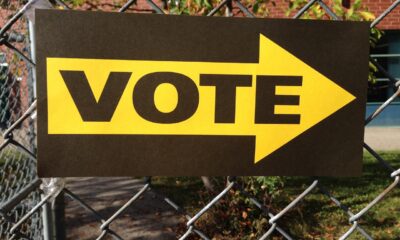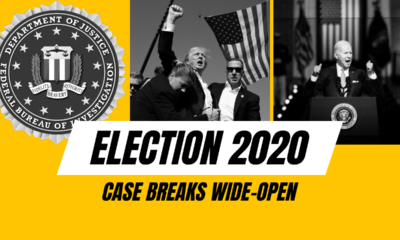Human Interest
Elon Musk – hero or heel?
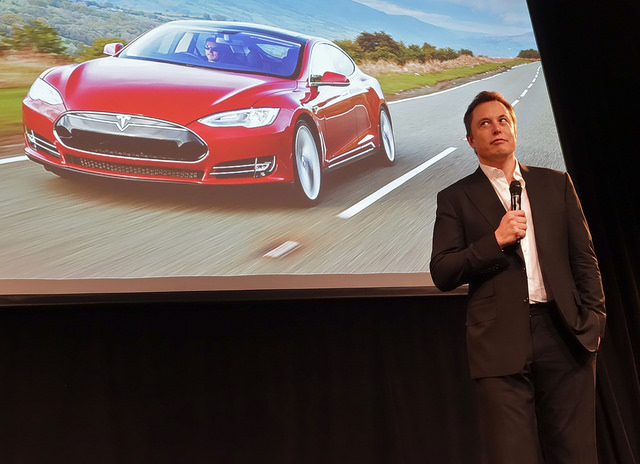
Elon Musk has dominated business news for years now. He dominates by reason of two companies he runs. They each deliver an unconventional product or service. One, SpaceX (the X stands for “exploration”), seems to defy convention about space-mission planning and support. The other, Tesla, Inc., offers an unconventional version of a conventional product. But does Elon Musk really offer valuable products and services? Or does he offer no more than a slight variation on a theme as old as civilization? A theme upon which someone offered capitalism—and the laissez faire model—to improve?
The libertarian critique of Elon Musk
What is crony capitalism?
On 29 May 2018 Lee Enochs, in The Lead, denounced Elon Musk as a “crony capitalist.” Most libertarians define crony capitalism as running a business according to a model that depends, in some measure, on government. Some libertarians would criticize every road-building contractor or defense contractor on this ground. They provide services primarily to government; therefore without government, they would not exist. Ergo: crony capitalists. The same might even apply to:
- Automobile companies that sell otherwise unsaleable cars to police departments. (Case in point: the Chevrolet Caprice, which finds use as a police radio car but not as a family car.) The same applies to those who build tanks and military fighting and transport vehicles.
- Gun companies that sell guns and ammunition to police and/or the military.
- Shipwrights that build ships for the Navy.
- Aerospace companies that build aircraft of war.
But only a tiny subset of libertarians would criticize such companies on this ground alone. These anarcho-capitalists prefer a society having no state of any kind. Some actually believe in a world having no crime but what we define, and no enemies but what we make. So they suspect anyone doing business with the police, the military or even the judiciary.
Meanwhile, back in the real world…
Real-world libertarians understand that crime occurs, whether we wish it to occur or not. They also recognize, as did Augustine of Hippo, that legitimate casus belli can exist. But: they would never advise government to get all its services from one vendor. Nor would they advise the government to hand out grants, easy loans, or other special privileges to favorite vendors. Not only does that offend against any concept of fairness. It also emphasizes “good-egg-ism” over the quality of the product or service involved.
And of course no libertarian would countenance anything that serves a purpose other than to advance law enforcement, military security, or peaceable dispute resolution. These three, and only these three, are the proper functions of government.
The specific case of road building
Even road building can be a completely private affair. Some libertarians say that if it had been a private affair, the transportation network might look a lot different today. On that, they agree even with statists! Statists who call road building a subsidy for automotive transport, for example.
Konrad Graf, in this piece on Elon Musk, seems to agree. How else to interpret this by him:
No car company would exist in its current form and at its current scale without unimaginably massive subsidies continuously provided to all automobiles over many decades, distorting not only the entire structure of transportation, but also the very formation and shapes of cities and communities. This vast structural distortion of the entire transportation industry, which systematically twists spatial relationships between residences and businesses, takes a simple form: the production and maintenance of roads provided free of charge to drivers, financed by taxation. A simple heuristic to consider while commuting is that every time one has to pay by waiting, such as in a long line or in thick traffic, the state is squarely to blame.
Would roads carrying jam-level traffic exist if motorists had to pay a toll on each one? Or even if merchants had to pay for road frontage, highway connections, and the like? Suppose, then, we could jump to a parallel universe in which the old “turnpike” model still prevailed. What would the road network look like? Would railroads still carry passenger traffic today, without government ownership or subsidy? Even guessing that would take us beyond scope here.
Bear all the above in mind when considering the next question:
Does Elon Musk qualify as a crony capitalist?
Lee Enochs makes the case thus:
- SpaceX has made itself the chief, if not sole, contractor for resupplying the International Space Station. That station itself offends libertarian sensibilities. The United States and Russian Federal governments built it. The Japanese government and a consortium of European government helped. Boom! Taxpayer boondoggle! To make matters worse, Elon Musk “pulled strings” to make sure the government wouldn’t even let any other company do what SpaceX does.
- Tesla builds “green cars” that exist only because governments pay people to buy them. Thus the government takes from many to benefit a few. (That violates even socialistic principle.)
Enochs concludes: without government, Elon Musk would be just another dew-eyed dreamer of impossible dreams. Though he hesitates to so rule on SpaceX, he definitely so rules on Tesla.
Opening statement of the defense
Return to Konrad Graf’s piece, that he offered a year ago. Otto Preminger, in dramatizing the novel Anatomy of a Murder, offered these four kinds of criminal defense:
- The event, however tragic, did not qualify as a criminal offense. This goes to the first element of standing: “injury in fact.” The rules of any court say flatly: no harm, no case.
- The defendant didn’t do the deed. This goes to the second element of standing: traceability to a defendant’s conduct.
- A legal justification existed—say if the defendant was defending himself, others, his home, etc.
- The defendant had an excuse for doing what he did.
Graf often uses each of the four, each in a different context. Merely building something to qualify for a subsidy that already exists, does not offend against liberty. But advocating for that subsidy, does. Some libertarians—call them the boycott libertarians—say no friend of liberty can have anything to do with subsidies. As they define the problem, no one should build anything, however “good,” that the government pays him to build, or pays his customer to buy. He who does, makes himself an accessory to theft.
Graf does not agree. In fact he seems to ask whether, a perfectly consistent libertarian may buy or drive a private car at all. This follows from his message that, without free roads and highways, no car company would be so big.
But Graf admits one thing: Elon Musk has advocated subsidy programs for “green cars.” He seems to think “the globe is warming” (like Chicken Little saying “the sky is falling”). The question then becomes: did he advocate for a subsidy, bring it to pass, and benefit from it?
Better this than a definite harm?
Graf offers this, too: at least Elon Musk, through Tesla, designed and built a better car. Worse harms result from other uses of government money. This last qualifies as more excuse than justification. And the excuse is only relative at that.
Graf neglects to address SpaceX, except to question the wisdom of some of its projects. (Colonies on Mars? Not so fast!). Perhaps Graf too quickly accepts uncritically the basic principle of the missions SpaceX supports.
The time has definitely come to examine critically what Elon Musk has accomplished, and its value. This especially holds when we have a President in office who concerns himself with whether a particular project is worthwhile. So let us consider Elon Musk as the grandest “Celebrity Apprentice” in Donald Trump’s lifetime.
Count one: SpaceX
Lee Enochs opens (and closes) with a 1990 essay by Murray N. Rothbard. Rothbard condemned all public-private partnerships, from the British East India Company to the Bush (Senior) administration. One can reasonably assume Rothbard would have regarded SpaceX as a modern British East India Company. Without the International Space Station, the reusable rockets Elon Musk built would have no place to fly.
Enochs also offers more evidence. The Los Angeles Times reckons that SpaceX, Tesla, and Solar City (another Elon Musk company) have drawn $4.9 billion in “government subsidies.” The Times counts direct grants, special tax privileges, low-interest loans, and “environmental credits.” (How the Times counts “factory construction” deserves special mention. According to it, New York State directly spent taxpayers’ money to build a factory for Solar City.) Of that staggering amount, the Times counts only $20 million in subsidies from the State of Texas. SpaceX build a launch pad complex in that State. Apart from that, SpaceX has gotten $5.5 billion in government contracts from NASA and the Air Force. In fact, Ars Technica points out that eighty percent of SpaceX’ revenues come from flying government missions.
In fact, SpaceX has made itself what NASA wanted most: a one-shop contractor, one that could “do it all.” NASA “made do” with the traditional “prime contractor and subcontractor” relationship during Project Apollo. The total costs of that program, when one adjusts it for inflation, stagger the imagination. SpaceX at least brought in a solution that, at first, cost far less and went on-line faster.
Second thoughts
But NASA might now have second thoughts. NASA’s Inspector General audited supply missions to the ISS last April. They now fear that SpaceX will raise prices. Why? Because NASA made the worst possible mistake: they came to award contracts to SpaceX only. The IG also asked whether the SpaceX rockets are as reliable as Elon Musk claims.
That aside, one must also ask what SpaceX has become, if not simply a one-stop contractor for one customer: the government. Then one must ask about the morality of the missions the government asks SpaceX to perform.
Lay aside the anarcho-capitalism of Rothbard and others. They don’t believe the government should even exist. Examine instead the International Space Station and what it represents. Any libertarian except an anarcho-capitalist would accept a military base in space. Such a base would legitimately extend the basic military function: to protect against invasion. It could do so pro-actively, and in a manner that would obviate “mutual assured destruction.”
But the International Space Station is not a military base. It is not even a good staging platform for exploration. At best it is a laboratory for industrial or biomedical research. As such it represents a subsidy to various industries that would otherwise have launched their own laboratory complex. Any such subsidy constitutes a “distortion of industry.”
Pure and applied science: a false dichotomy
Some will immediately say the ISS does pure science, which sees no immediate payoff. Ayn Rand famously decried the dichotomy between pure and applied science. She, more than any other libertarian, suggested a proper libertarian model for doing “pure science.” Ideally, engineers would do as much research into basic principles of nature as in how to apply them for invention. Thus the would-be inventors would be doing as much “pure” or abstract science as concrete science. Failing that, the engineers, as a class, would gladly subscribe to a journal releasing certain new research findings, or make their own grants to university “pure science” departments. But today the government subsidizes nearly all “pure research.”
Ayn Rand denied any meaningful distinction between pure and applied science. All knowledge has a use, and all actions serve an interest. Who has a strong enough interest, should pay to serve it. And who pays the piper, calls the tune.
In that sense, Elon Musk already benefits from servicing a project beyond the government’s legitimate scope. If, moreover, he advocates for such a program, then he actively steals from taxpayers.
Mars in our future?
Libertarians don’t know what to make of the most ambitious project by SpaceX: planting a colony on Mars. Does he promise investors great returns from mineral sales, royalties, and the like? He’s never actually made such a case. Instead he wants humankind to “become an interplanetary species.” Earth, he says, is not enough.
His reasoning should strike everyone as odd. If Earth is, or could come, under as great a danger as he fears, mightn’t humanity better serve itself by mitigating the danger? Is an asteroid about to splash into the ocean and send tidal waves to wash humanity off the land? Then kick the asteroid aside, or blow it up! (Small-enough pieces would burn up in the atmosphere and harm no one.) Surely that would cost less than building cities on Mars. Where, as Konrad Graf says, humans would weaken physically and perhaps not even be able to bear children. Why won’t Musk even address that hazard, or the less-expensive solution?
Could he actually intend to “lock in” a permanent and monopoly concession for transport from Earth to Mars and back? Maybe that’s why Murray Rothbard considers any “private partner” of government no better than a racketeer. A racketeer proposes a solution to a nonexistent problem. He then sets up the problem, or convinces others that they have a problem they don’t have.
Count two: Tesla
Enochs makes a stronger case against Tesla, Elon Musk’s motor and long-term battery company. He does not have an open-and-shut case. Tesla makes some of the finest cars on the road today. And recently they showed how quickly they can improve them, even without recalling them. Patrick Olsen at Consumers Union tells this jaw-drop amazing tale:
Consumer Reports now recommends the Tesla Model 3, after our testers found that a recent over-the-air (OTA) update improved the car’s braking distance by almost 20 feet….
Until now, that type of remote improvement to a car’s basic functionality had been unheard of. “I’ve been at CR for 19 years and tested more than 1,000 cars,” says Jake Fisher, director of auto testing at Consumer Reports, “and I’ve never seen a car that could improve its track performance with an over-the-air update.”
In other words: “Wow! We’ve never seen anything like this!”
Elon Musk has made a habit of making end users “marvel” at what his products and services can do. But his cars come at a steep price. Edmunds has detailed total costs of ownership for the Tesla Models S and X. Those models cost plenty to own, even with the $7500 tax credit such cars carry today. (And that won’t last. A President who withdrew from the COP-21 Agreement will surely withdraw that credit, too.)
The Model 3, according to Loupventures, might change the calculus.
Owning a Model 3 is only 13% more expensive than owning a Toyota Camry over a 5 year period. Note that our analysis assumes no state or federal EV tax credits, given that we expect those incentives to end before Dec. 2020.
Now that makes a difference. More to the point: the Model 3 excels in bang for the buck.
But can Tesla deliver?
Tesla has two problems. Its worse problem is production. It’s not rolling its cars off the assembly line as fast as it planned. If that does not change, Tesla will lose the opportunity the Model 3 gives it.
The other problem: range. One can drive a 2013 Chevrolet Malibu LT “around the town” for 500 miles without refueling. (Your editor does this all the time). On a long highway trip the range can rise as high as 700 miles and typically averages 650 miles. (Again, your editor has his own “road test data” to back this up. Try it yourself: start with a full tank, with trip distances and average fuel economy set to zero. At destination, read the distance you drove and the remaining range. Tot them up.) A Tesla Model 3 has gone 281 miles without recharging.
Range is the deal-killer. When a Tesla needs a recharge, it typically must take half an hour or even a full hour. All very well if you plan to sit down in a restaurant within walking distance of a recharge station. Otherwise…!
In driving around-the-town, range doesn’t matter nearly as much. Many Tesla owners install recharge stations at home and recharge overnight. (Apartment complex developers, take note! A recharge station might become the next “luxury” for your tenants, along with the car-wash and vacuum stations.) If employers install charging stations in company parking lots, they might solve the range problem for commuters.
But that leaves the long-haul vacationers stuck. They must recharge en route, taking a full sit-down mealtime to do it. And they must stay at hotels that offer overnight charging to guests. (But at least they need not pay more to recharge than to buy gasoline.)
A semi-truck?
Tesla has a semi-truck under active development. They hope to achieve a range-between-charges of 600 miles. At least one competitor seriously doubts Tesla can do this. And without that range, no serious long-haul independent trucker or fleet manager will buy it. Truckers don’t sit down at restaurants for leisurely meals. They refuel, buy hamburgers or meals with heat packs, then eat while driving. Time is money. Ask one. So they need a truck that goes the same distance as the Diesel trucks they now drive. More to the point, they need a truck they can refuel, or recharge, in ten minutes or faster. That’s how fast they can refuel the trucks they’re now driving, and they won’t wait longer.
In fact, for months no Tesla semi prototype appeared on any highway. That led some to think Tesla had abandoned the program.
Two kinds of competition
Tesla faces competition from two quarters. First, other car and truck builders are developing their own electric vehicles. If they can consistently deliver more bang for the buck than can Tesla, they win.
Second, one of Tesla’s former executives left the company to start his own firm, Wrightspeed. Ian Wright, the founder and chief developer, gave an interview to explain his rationale. Family cars and long-haul trucks, says Wright, cannot deliver significant economies, in money or energy. But short-haul heavy-duty trucks can. These kinds of trucks pick up your garbage and recyclables. That takes a lot of energy, including crushing the load and hauling it to the dump or sorting yard. Wright guesses his new powertrains can do the job with half the fuel of a Diesel engine. His powertrains are also good for buses and off-road construction vehicles. And he has high hopes to convert cement mixers, drink delivery trucks, and the like.
The larger point: Ian Wright does not rely on tax breaks or government checks to sell his new powertrains. His products can save his customers serious money without such things. Furthermore, he learned the hard way that batteries can carry only so much juice per cubic inch. Elon Musk doesn’t seem to have learned that lesson.
Where Tesla stands
The year 2020 will likely be the do-or-die year for Tesla. In that year, the $7500 tax break goes away, if President Trump lets it last that long. When Hong Kong and Denmark curtailed their electric-car tax breaks, Tesla lost nearly all its unit sales in those jurisdictions. Could that happen in the USA? Maybe not quite as bad as that. After all, $7500 doesn’t make quite as much difference to someone buying a $35,000 car. Besides, Loupventures calculated a highly favorable total-cost-of-ownership without the $7500 tax break.
Even so, Wall Street’s buzzards are clearly circling. Investors have sold more than 25 percent of Tesla’s outstanding stock short, more than for any other company. Their problem: Tesla can’t roll cars off the assembly line fast enough! Elon Musk must either change that sad fact, or go down. It’s that simple.
Closing argument
Private partners in “public-private partnerships” usually fail anyway. Or else they become permanent fixtures of government in all but name. Consider the United States Postal Service, or the National Rail Passenger Corporation—Amtrak for short. Is Elon Musk angling to make his holding company the next Amtrak? Time will tell. But in fact Elon Musk’s model is not Amtrak, but Volkswagen. Nazi-era Volkswagen.
Ideally someone should make Elon Musk pay back some of the $4.9 billion he’s gotten. Government checks, tax breaks, factory seed money, and loan interest breaks are obvious candidates. Those cap-and-trade-style credits present a complication. At least taxpayers didn’t pay for those. (But end users did!)
But in fact that $4.9 billion might never come back. Even trying to claw any of that back, would need an ex post facto law. The Constitution forbids that.
But Congress and the President can make sure no further federal money goes to Elon Musk or any of his companies, except for services rendered. They can cut off the $7500 tax break today if they want. State governors and legislatures will need to find the political courage to cut off their own subsidies.
SpaceX seemed at first to be Elon Musk’s saving grace. But 80 percent of its business comes from government, and from a questionable project at that. Mars, moreover, seems a space-opera pipe dream.
Tesla might surprise everyone, if it can crank up its assembly line. Even so, at least one Tesla executive went out to find the real money and energy savings. And those who buy the Tesla Model 3, will have to give up long drive-away vacations. That model doesn’t have the range, and never will.
More broadly, American voters and taxpayers must decide now whether they want real capitalism—or crony capitalism.
Terry A. Hurlbut has been a student of politics, philosophy, and science for more than 35 years. He is a graduate of Yale College and has served as a physician-level laboratory administrator in a 250-bed community hospital. He also is a serious student of the Bible, is conversant in its two primary original languages, and has followed the creation-science movement closely since 1993.
-

 Executive5 days ago
Executive5 days agoWaste of the Day: U.S.-Funded International Groups Don’t Have to Report Fraud
-
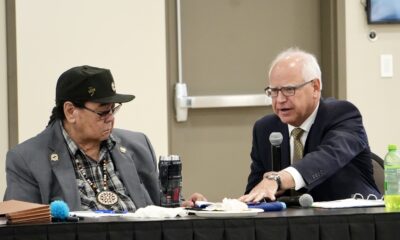
 Civilization2 days ago
Civilization2 days agoHow Republicans Can Make DFL Pay for Fraud Scandal
-

 Executive4 days ago
Executive4 days agoWaste of the Day: Throwback Thursday – Monkeys Throw Poop, And $600K
-
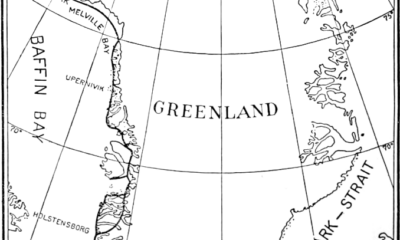
 Civilization3 days ago
Civilization3 days agoBreaking Away From the Pack: The Case for the Acquisition of Greenland
-

 Civilization1 day ago
Civilization1 day agoTranquility Is a Drama Trump Can Win
-
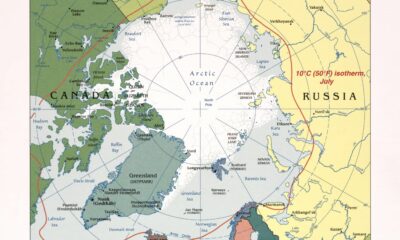
 Civilization4 days ago
Civilization4 days agoThe Battle for the Arctic Runs Through Greenland
-
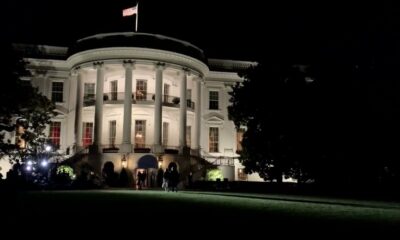
 Civilization3 days ago
Civilization3 days agoWH Contradicts FBI Director: Law-Abiding Protestors ‘Have Right To Bear Arms’
-
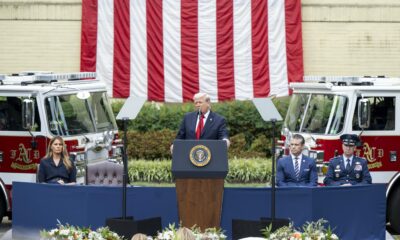
 Christianity Today2 days ago
Christianity Today2 days agoAbout FACE: Trump Administration Using Abortion-Focused Law To Defend Believers



